Fresh Expressions Learning Communities, which tend to be Synod-wide initiatives, are becoming increasingly popular within the URC and ecumenically. Groups of like-minded people meet to share ideas and work together to understand the huge variety of contexts and different approaches to mission. Conversation is lively, and the meetings are open to all denominations, lay people and ordained, in fact, anyone who is involved with a new form of church.
Contact the URC Coordinator for Fresh Expressions for more information.
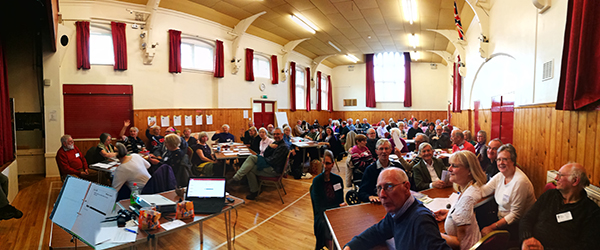
Yorkshire Learning Community
Fresh Expressions training
Vision events
These events can be as long, or as short as you like. Designed to introduce the concept of fresh expressions of church, and new ways of doing mission, they encourage much discussion and lively conversation amongst the participants.
The URC Coordinator for Fresh Expressions is available to help you organise and present a Vision event.
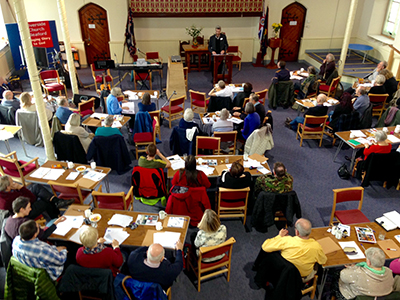
Vision Day at Sleaford URC (viewed from the gallery)
Mission Shaped Intro: (MSI)
A five, or six session course introducing churches to mission, MSI helps people to reconnect with the communities they are called to serve and to re-imagine the forms of church that are needed for the 21st century. It takes you on a creative and reflective journey looking at the need for new ways of being church.
https://freshexpressions.org.uk/resources-3/mission-shaped-introduction/
Mission Shaped Ministry (MSM)
MSM is a one-year, part-time course which equips, resources and supports those pioneers who are starting, or already running a Fresh Expression of church.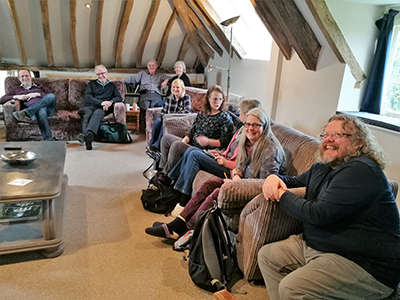 The course provides the opportunity for individuals or teams to enrol and learn side-by-side as part of a supportive community – becoming more mission focused and reflecting on what that means for their lives and ministries. The course is ecumenical and open to all – so if you are interested in going deeper in your FX journey then we reckon this course will be right up your street.
The course provides the opportunity for individuals or teams to enrol and learn side-by-side as part of a supportive community – becoming more mission focused and reflecting on what that means for their lives and ministries. The course is ecumenical and open to all – so if you are interested in going deeper in your FX journey then we reckon this course will be right up your street.
https://freshexpressions.org.uk/resources-3/mission-shaped-ministry/


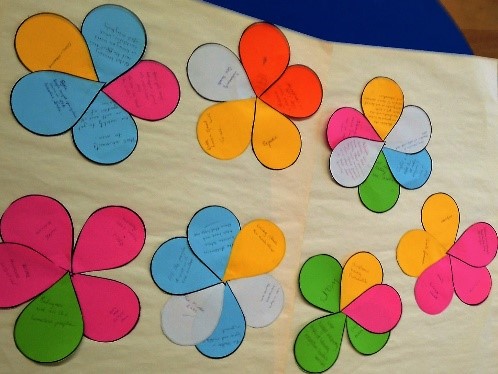
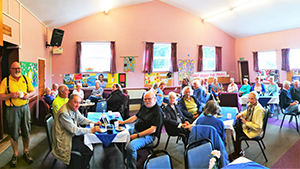
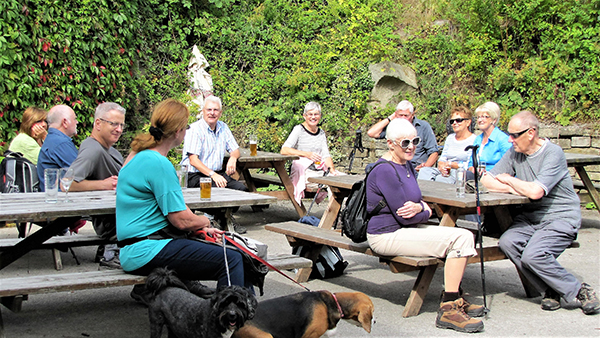

 In 2010 the United Reformed Church adopted a ten-year strategic framework for mission called vision2020. Its aim is to encourage and support mission planning at every level of the Church: local, synod and Assembly. Vision2020 includes ten priorities for mission and these are offered to local churches to help them identify one or two mission priorities which are particularly relevant to their context. Once priorities are set, churches can make a mission plan.
In 2010 the United Reformed Church adopted a ten-year strategic framework for mission called vision2020. Its aim is to encourage and support mission planning at every level of the Church: local, synod and Assembly. Vision2020 includes ten priorities for mission and these are offered to local churches to help them identify one or two mission priorities which are particularly relevant to their context. Once priorities are set, churches can make a mission plan.

